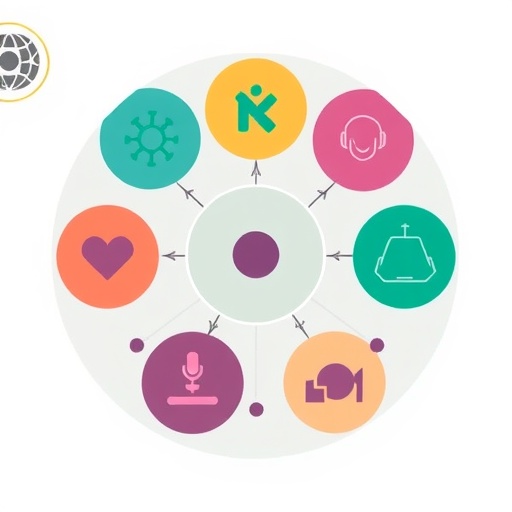The cardiovascular consequences of COVID-19 have emerged as a critical area of concern as the pandemic evolves, revealing profound and lasting effects on the heart and vascular system. Recent comprehensive expert evaluations underscore the severity of these effects, both during acute infection and in the chronic phase commonly known as long COVID. This growing body of evidence highlights an urgent need to focus medical efforts on prevention, diagnosis, treatment, and rehabilitation strategies specifically tailored for cardiovascular complications associated with COVID-19. As the virus continues to infect millions globally, understanding and mitigating its impact on cardiovascular health remain pivotal.
COVID-19, caused by the SARS-CoV-2 virus, initially presented primarily as a respiratory illness, yet accumulating data confirm its systemic nature, with the cardiovascular system being a significant target. Acute infection can precipitate a range of cardiac complications including myocarditis, arrhythmias, thromboembolic events, and acute coronary syndromes. Even beyond the immediate illness, long COVID manifests as an extended syndrome marked by symptoms such as chest pain, dyspnea, palpitations, fatigue, and dizziness. These symptoms frequently correspond to underlying cardiac dysfunction or autonomic nervous system dysregulation, necessitating vigilant cardiovascular evaluation.
An expert consensus statement published in the European Journal of Preventive Cardiology consolidates current research and clinical experience to provide evidence-based recommendations for managing cardiovascular disease in the context of COVID-19. Spearheaded by a collaboration of leading European cardiovascular specialists, the report systematically addresses the mechanisms by which COVID-19 injures the heart and vessels, diagnostic pathways for detection of post-COVID cardiac abnormalities, therapeutic interventions, and structured rehabilitation programs designed to restore cardiovascular function and improve patient outcomes.
Importantly, the report reveals that individuals requiring hospitalization for COVID-19 display markedly elevated risks for subsequent cardiovascular events—including myocardial infarction, stroke, and cardiovascular mortality—persisting well after the acute phase. A particularly concerning statistic estimates that around five million people worldwide may be living with cardiac manifestations of long COVID, characterized by persistent angina, heart failure symptoms, arrhythmias, and autonomic dysfunction. The pathophysiology appears multifactorial, involving direct viral myocardial invasion, microvascular injury, prothrombotic states, and sustained inflammatory responses.
Cardiac rehabilitation emerges as a cornerstone in the management of both acute and chronic cardiovascular sequelae linked to COVID-19. These programs incorporate specialized physiotherapy tailored to cardiovascular recovery, emphasizing graded exercise, autonomic regulation techniques, and symptom management strategies. The restorative potential of rehabilitation is significant, yet access remains insufficient and unevenly distributed, especially in rural or resource-limited settings. There is an urgent call for healthcare systems to expand rehabilitation capacity and ensure equitable access for all affected patients to mitigate long-term disability.
Vaccination against COVID-19 is highlighted not only as a tool to prevent infection but also as a critical measure to reduce cardiovascular complications. Fully vaccinated individuals demonstrate a substantially lower incidence of cardiac involvement and long COVID symptoms, suggesting that widespread and sustained vaccination programs must continue as a public health priority to safeguard cardiovascular health. This protective effect underscores vaccination’s role beyond respiratory protection, encompassing broader systemic benefits.
Moreover, the consensus report advocates for ongoing research to address significant knowledge gaps surrounding cardiac long COVID. These include elucidating precise molecular and cellular mechanisms of cardiac injury, identifying biomarkers for early detection and risk stratification, and optimizing therapeutic regimens for symptom control and functional recovery. Collaborative international efforts are essential to generate high-quality data and translate findings into clinical practice effectively.
Clinicians face the challenge of distinguishing between cardiac symptoms attributable to long COVID and those arising from conventional cardiovascular disease. The report emphasizes the necessity for thorough cardiovascular evaluation, including imaging modalities such as echocardiography and cardiac magnetic resonance imaging, to assess myocardial inflammation, fibrosis, and functional impairment. Holistic patient assessment also involves autonomic function testing to diagnose dysautonomia, which may underlie many of the debilitating symptoms seen in long COVID.
The societal impact of cardiac involvement in COVID-19 is profound, contributing to increased healthcare burden, long-term morbidity, and reduced quality of life for millions worldwide. Addressing these issues demands a multidisciplinary approach integrating cardiology, infectious diseases, rehabilitation medicine, and primary care. Health systems must adapt to accommodate the growing population affected by cardiac long COVID, ensuring coordinated care pathways and resources are available to meet demand.
In conclusion, the cardiovascular dimension of COVID-19 represents a significant and ongoing challenge necessitating structured strategies encompassing prevention, diagnosis, treatment, rehabilitation, and research. The expert consensus from European cardiovascular authorities provides a vital framework to guide clinicians and policymakers in addressing this complex dimension of the pandemic. It underscores that protecting heart health must be a central consideration in managing COVID-19’s immediate and long-term consequences, reinforcing the imperative for vaccination, equitable healthcare access, and scientific inquiry into this evolving public health crisis.
Subject of Research: Cardiovascular disease prevention and management in the context of COVID-19, including acute infection and long COVID.
Article Title: Cardiovascular Disease Prevention and Management in COVID-19. A Clinical Consensus Statement of the European Association of Preventive Cardiology, the European Association of Cardiovascular Imaging, the Association of Cardiovascular Nursing & Allied Professions, the European Association of Percutaneous Cardiovascular Interventions, and the Heart Failure Association of the ESC
News Publication Date: June 2023
Web References:
https://academic.oup.com/eurjpc/article-lookup/doi/10.1093/eurjpc/zwaf540
References:
Vassilios S Vassiliou et al., European Journal of Preventive Cardiology, doi: 10.1093/eurjpc/zwaf540
Keywords: Long COVID, cardiology, COVID-19 cardiovascular complications, cardiac rehabilitation, SARS-CoV-2, cardiovascular disease, vaccination, autonomic dysfunction




